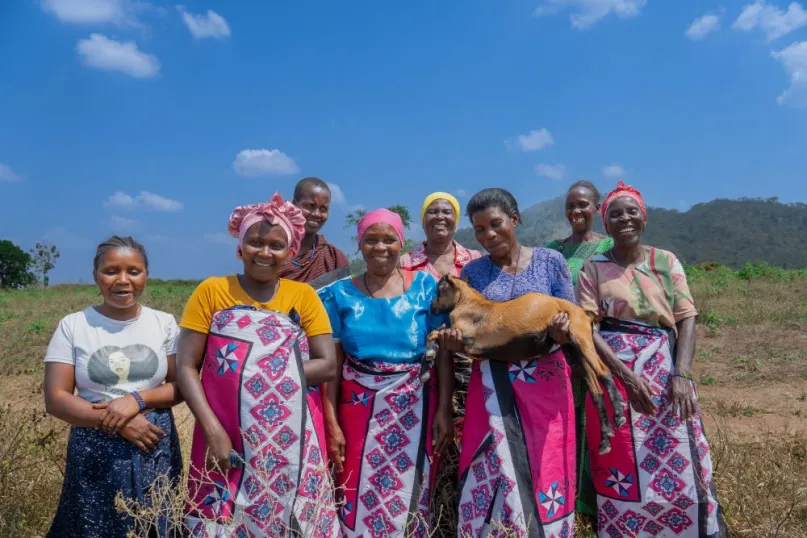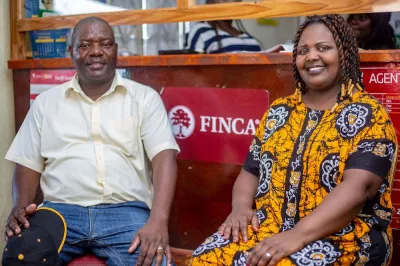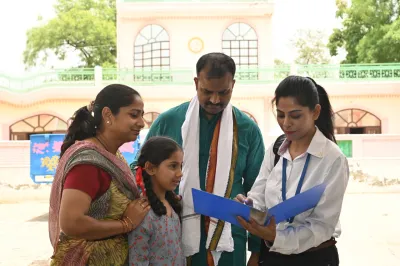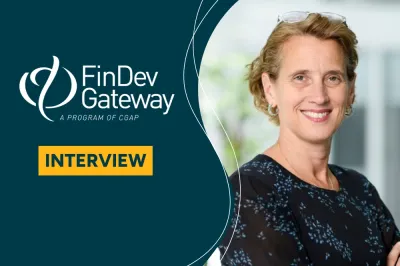What Happened When We Trained 70,000 Women on Financial Literacy

On a hot, sunny day in Turiani, eastern Tanzania, Angelina, Jennifer and 20 other Maasai (African nomadic tribe) women led us down a dirt path in their village and proudly showed us 11 goats grazing in a grassy field. Three months earlier, they owned no livestock and relied on small trading for an income. Now, after twelve months, they had 35 goats, which they could sell for a reasonable profit. What changed? They decided to start a business together after participating in a financial literacy course.
Financial literacy: the missing link in women’s financial inclusion
When it comes to decent income, the odds are stacked against women. Not only do women have lower access to formal credit, property ownership and mobile phones than men, but research shows that women also have lower levels of financial literacy - a key indicator for financial inclusion.
Yet, in the least-developed and developing nations, it's the female micro-entrepreneurs who are driving economic activity. In Africa, women are often their families’ primary breadwinners, despite experiencing poverty and often lacking formal education.
Working closely with women in Africa for more than a decade, BRAC has always strived to listen and learn directly from clients, closely monitoring whether our services have any measurable impact in the lives of the women we serve, and how we can further strengthen women’s financial resilience.
In 2023, BRAC started an ambitious pilot to answer this call. With support from the Mastercard Foundation Accelerating Impact for Young Women (AIM) program, BRAC started with a modest, first-year goal: to reach 70,000 women in five African countries.

BRAC’s financial literacy program reached over 72,000 women in five countries in 2023; the size of the pilot was proportional to our size in each country.
A financial literacy course tailored to women’s needs and interests
While designing the course, we asked clients what they wanted to learn about and how they wanted to learn. As a result, we adopted adult learning principles, focusing on facilitating group discussions and peer learning, rather than lecture-style teaching.
The course began with topics that resonated deeply with clients, like trust-building, child spacing and personal relationships. Relevancy was key. For women living in poverty, family decisions on childbearing, balanced diets and relationships in the household can influence how they plan and invest in their businesses. BRAC’s clients noted how their own well-being and that of their families are related to how they progress economically.
In addition, simple narratives, visual aids and real-life examples made technical subjects like record-keeping and marketing easier to understand. Hands-on practice, such as with mobile money transactions, was included for women without literacy or numerical skills.

BRAC’s financial literacy curriculum comprises 22 topics and is delivered through 20-30 minute sessions over six months.
Financial education leads to bonding and better financial decisions
Early results are encouraging. Clients are turning knowledge into action - saving more money, investing in joint businesses, and building stronger bonds with each other.
For instance, following the session on budgeting and savings, many clients began setting individual savings goals beyond their usual installments with BRAC. A group of women in Tanzania formed a savings circle and invested in a small piece of land to grow tomatoes, diversifying their income and earning more profit. A client in Sierra Leone said she has learned how to use the calculator on her phone to calculate business transactions. In Uganda, some clients brought their husbands to attend sessions on child spacing and relationships, demonstrating the relevance of the topics covered in the course.
Although clients met every week in their group to repay loan instalments before the course began, there was renewed energy and engagement long after. In all countries, staff observed women having discussions on issues they were learning every week. Best of all, the groups became a safe space to share and learn from one another.
While these encouraging early results are based on initial staff observations, we are also planning an impact evaluation to measure the long-term effects of the financial literacy training on our clients' lives, beyond the impact of the loans themselves.
Financial literacy: a path to resilience and growth
In fact, being closest to the women they serve, responsible microfinance institutions are uniquely positioned to deliver financial literacy.
Access to responsible financial services enhances women’s economic empowerment and builds their resilience against health and climate shocks. Its impact could be even greater if women are provided with knowledge on digital literacy and how to budget, save and invest wisely.
At BRAC, the financial literacy course is integral to our mission of empowering women living in poverty. We have set a lofty goal to reach nearly one million women across seven countries in the next five years with financial literacy training. We will continue adapting the course for smallholder farmers and climate-vulnerable communities. As we embark on this journey, we are hoping to learn more from our clients and give them the tools and confidence to realize their potential.



The success of this program highlights the importance of integrating financial literacy into financial services, especially for empowering vulnerable women and fostering resilience. I look forward to seeing the long term results of this program.
Indeed, this is a positive results made by BRAC through financial literacy training to liberate Women mentally to achieve their economic and social dreams, for sure BRAC has been a great help to entrepreneurial Women to rich their goals especially in Africa
Ultimately stronger economic empowerment, increased resilience, and overall community development.
Leave a comment